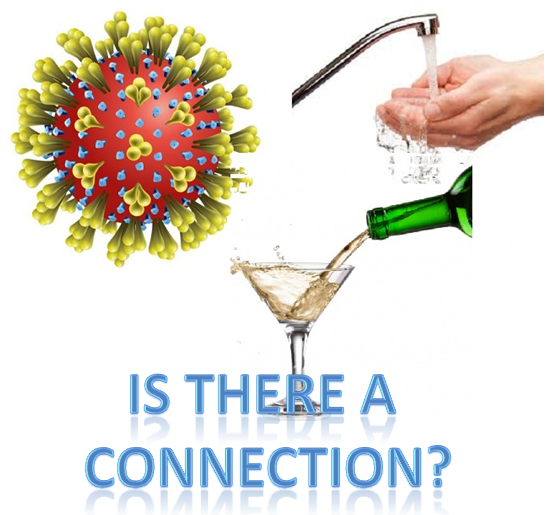COVID-19, Washing Hands, Alcoholism and Sacred Cows
By Gideon Eden, PhD
Most scientists agree today that exposure to COVID-19 has different outcomes for different people, such as young vs. old, men vs. women, and among different countries of residence. It is also logically assumed that infection rates and death rates are related to the amount of exposure or number of viruses a person encounters in a specific period of time. We should also be interested in an earlier conclusion (before the COVID-19 era) of the World Health Organization (WHO) stating that “Alcohol use, especially heavy use, weakens the immune system and thus reduces the ability to cope with infectious diseases.” That statement was related to various infectious diseases in general and not specific to COVID-19.
A while ago, before the COVID-19 era, I raised a question in a previous blog published on ask-BioExpert regarding the implications and drawbacks of the long time practice of frequently washing hands that has been advocated unanimously by almost all professional microbiologists and professional health providers. In that blog, I raised the following issues:
- While the arguments for hands washing do make sense, especially after considering the enormous scientific knowledge and accumulated data about diseases, it is still not clear that these precautions are definitely helping in actually preventing their spread. As time goes by, it seems that the situation is getting worse rather than improving and that there is no significant correlation between handwashing and improved health.
- The author is not a denier of the scientific evidence about the role of microorganisms in causing illnesses and the significant progress made in food safety and medicine to prevent diseases’ causes and consequences. There is no suggestion that physicians, surgeons, and food manufacturers and preparers should not practice the highest hygiene level. Nevertheless, the author wishes to raise an issue regarding the role of the personal immune system in preventing diseases and ask WHETHER EXCESSIVE HAND WASHING FOR YEARS CAN POTENTIALLY INHIBIT THE IMMUNE SYSTEM FROM DEVELOPING ITS OWN NATURAL PROTECTION MECHANISMS, THEREBY BECOMING A CONTRIBUTOR OF ILLNESS RATHER THAN ITS PROTECTOR.

I must confess that my raised arguments were not received favorably by the food safety experts’ community. I am wondering though whether I am wrong, or maybe we still are captives of the “sacred cow” that we do not dare to confront.
As related to COVID-19 the author once again is not a denier of the absolute necessity, in this era, to practice social distancing, wearing masks, and applying highly hygienic practices of disinfecting and washing hands. Nevertheless, I would like once again to examine the question of whether such excessive practices for many years since childhood can potentially inhibit our immune system from protecting itself from bacterial and viral-based diseases SUCH AS COVID-19.
The second issue I would like to examine is whether the consumption of alcohol may play a role in the infection and/or death rates of COVID-19, as indirectly raised by the WHO entity. The following table may provide some insight relating to various parameters, which include geographical data, consumption of alcohol by gender which vary in different countries between males and females. This table is a compilation of various data sources from WHO, Our World in Data and World Population Review

While this table may not “prove” the full extent of the observations, it may raise the following points as well as further questions:
- Does the data clarify that the difference in death rates between men and women is correlated to their relative alcohol consumptions?
- Is the difference in death rates between countries correlated to their relative average (gender-wise) alcohol consumption? Is there a difference related to alcoholism resulting from general alcohol consumption or also associated with alcohol type such as wine vs. higher level of alcoholic liquors? (See the data indicating lower alcoholism and high death rate associated with Spain and Italy vs. other European countries).
- What is the reason for the relatively high rates in Europe and North America where hygienic practices has been historically applied vs. countries of the Middle East? Why do people seem to be more immune in countries where people are being exposed to environmental factors during the course of their lives?
My final thought is that it is wise to frequently re-confront our sacred cows, which are strangely becoming holy in the name of “science.” Due to its criticality, it also seems strange that there has not been a sufficiently serious attempt to research the influence of alcohol, leaving people to believe that drinking guards them against being infected.
